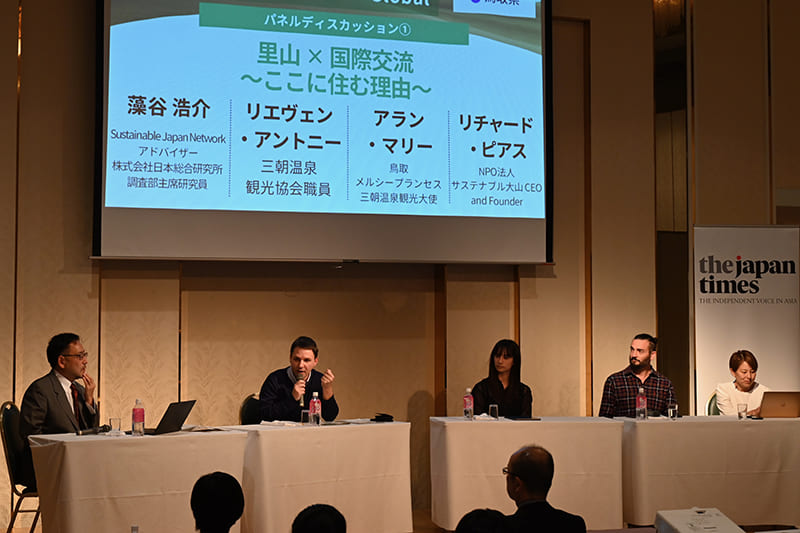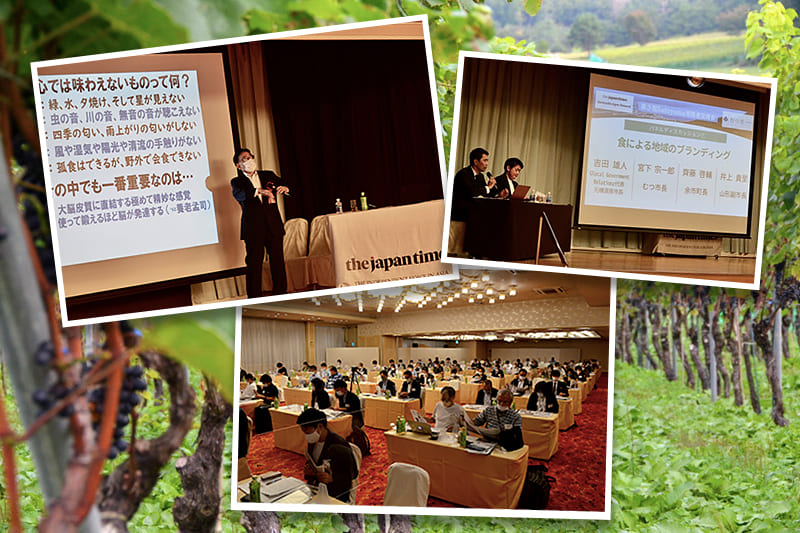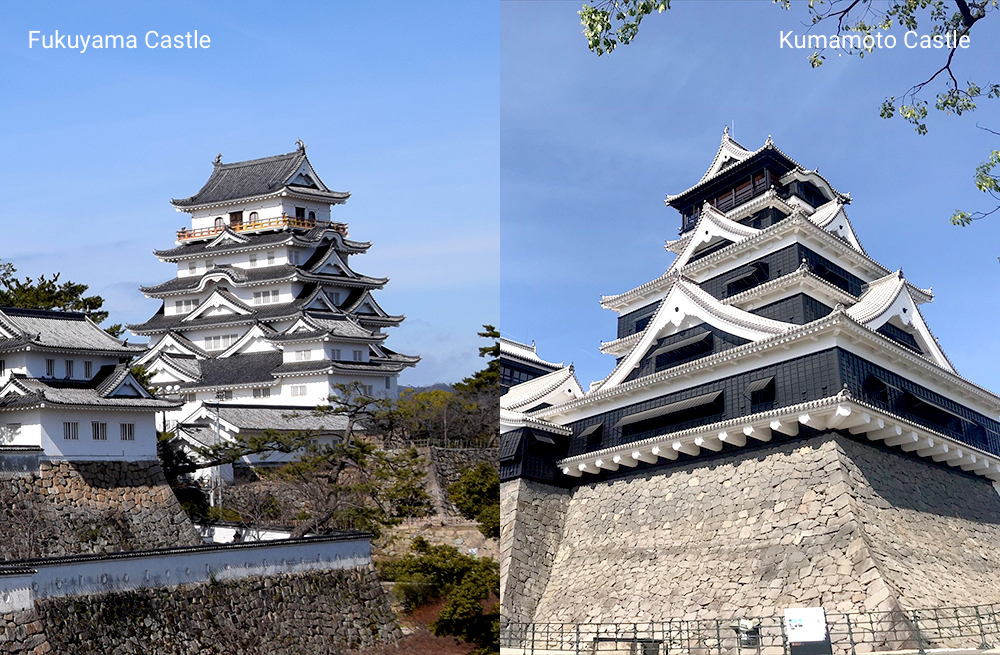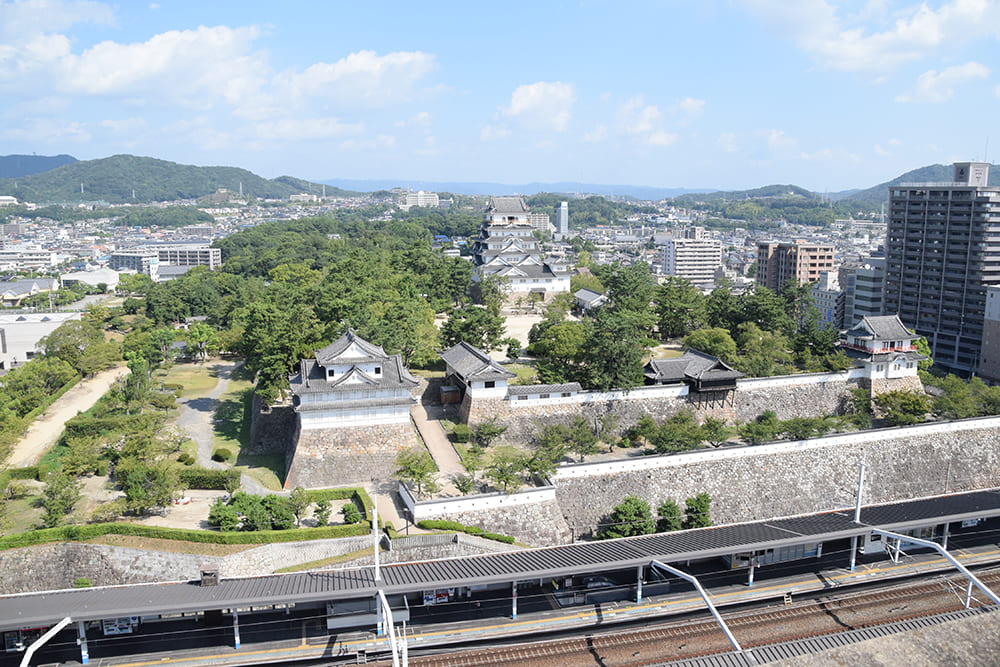April 05, 2024
Value Management revives towns through preservation for tourism
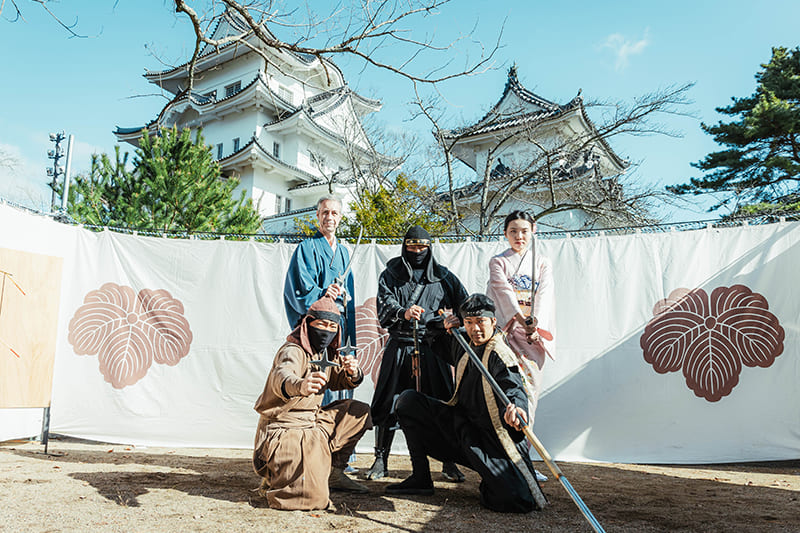
Century-old traditional homes, historic buildings designated as important cultural assets, actual castles — these are the kinds of regional resources that Value Management Co. Ltd. has been preserving and using to promote tourism-oriented community development since its establishment in 2005. The company won the Sustainable Japan Satoyama Excellence Award, presented by The Japan Times, in 2023 for its efforts to revitalize rural communities through preserving rural townscapes and culture based on the restoration and utilization of historic buildings.
“Tourism has the potential to create a flow of people and money to rural areas, and the key to unlocking that potential lies in how regional resources are used,” Value Management CEO Jun Tarikino said in a recent interview with The Japan Times. But buildings are not the only resources — he also spoke of intangible values and resources such as people’s livelihoods, food, culture and history. These things live on as long as people continue to live in an area. He thinks that for people to want to continue living in an area, it is important to preserve a townscape that they feel attached to and proud of. Preservation is costly, but it can be economically sustainable if the preserved buildings can generate profit. If a town is rejuvenated, people will want to stay there all the more. This is why the company focuses on renovating historic buildings into tourism facilities such as accommodations and restaurants to revitalize rural communities through tourism.
Nipponia Hotel Igaueno Castle Town is one of Value Management’s recent projects. Iga Ueno Castle stands in the Mie Prefecture city of Iga, historically known for its ninja and as the hometown of the legendary haiku poet Matsuo Basho, in the Ueno Basin to the south of Shiga Prefecture and east of Nara Prefecture.
In addition to several historic buildings that have already been renovated by Value Management and opened as hotels — including a tangible cultural asset dating back to the Edo Period that at various times housed a wholesaler of medicinal herbs or a restaurant and inn, a former lumber storehouse and a soy sauce factory — a project is underway to turn Iga Ueno Castle, which was originally built in 1585 and reconstructed in 1935, into a venue for special castle stays.
The company previously collaborated with the Ehime Prefecture city of Ozu in launching Japan’s first plan for people to be able to stay at Ozu Castle. Drawing on this experience, the plan for Iga Ueno Castle will offer guests various opportunities to learn the history of the area and experience its traditions, including the martial art that true ninja practiced.
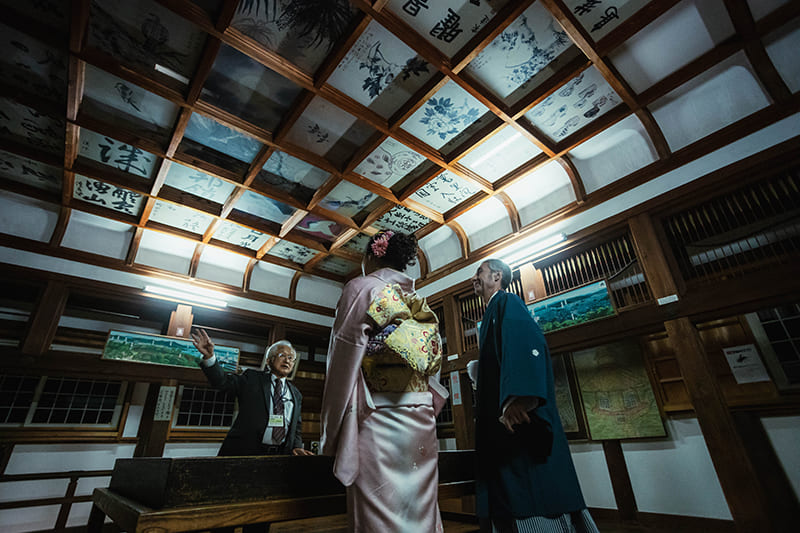
Tarikino said that in many of the areas where the company has engaged in tourism-based community development, the residents began to understand what tourism could do for their town and more clearly saw the value of what they had when they witnessed tourists staying at renovated old buildings and appreciating the townscape. “Then they begin to say, ‘Why not repair and use these buildings too’ or start planning various events to welcome and entertain visitors more,” he said, stressing the importance of making small initial successes in order to trigger the willing engagement of broader stakeholders, including local citizens, in the process of expanding the scale of tourism-based community development.
“Building consensus among all of the stakeholders involved in community development is important, and it is easier and faster when we start with a small project,” he said, adding that Japanese are better at applying an approach that has already proved successful somewhere than starting from scratch.
Value Management has restored and managed historic buildings and promoted tourism-orientated community management in as many as 200 areas across Japan. Having these examples to draw on is also effective when new projects face legal limitations. Although in 2018 major changes were made to national laws related to the management of hotels and inns — to which Tarikino contributed as an expert on the utilization of historic buildings — municipal ordinances have lagged behind in many areas. Precedents help when Value Management tries to work together with municipalities to change either the ordinances or the interpretations of how to apply them.
Tarikino believes that their achievements will also be useful for foreign countries, especially other advanced countries that will experience depopulation and related issues similar to what Japan is going through at the moment. “Of course it is better to have many domestic consumers, but we already know that the population will decrease, so based on this fact, we need to find ways to keep our nation in good shape. Other countries are looking curiously at how Japan will approach its problems, and I think we should share with the rest of the world how to overcome various social challenges,” Tarikino said.

